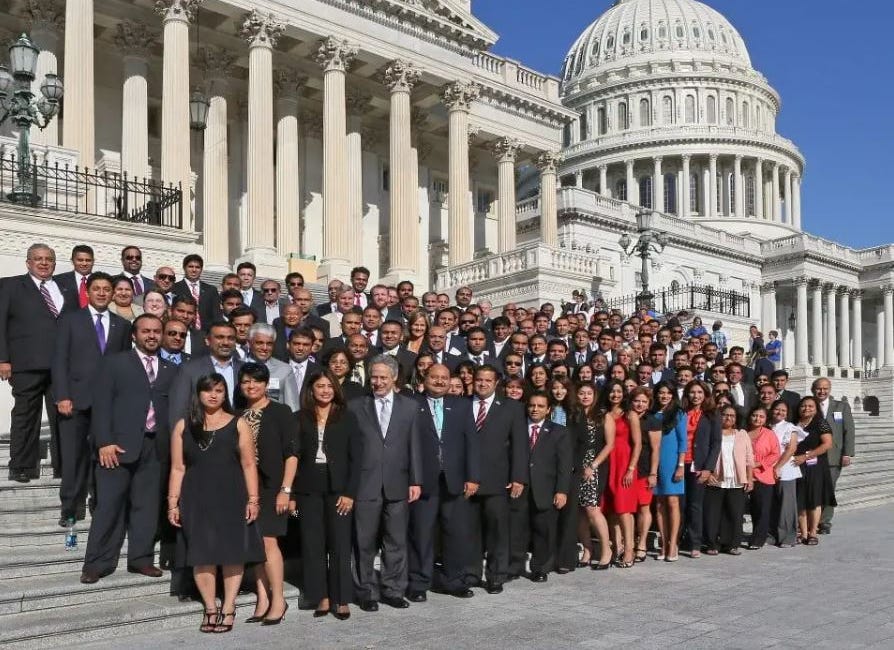Above: France’s Cathedral of Notre Dame was rebuilt by French workers—we still don’t know who set it on fire.
In a sweeping decision that reshaped the American legal landscape on education and employment, the U.S. Supreme Court in 2023 officially ended affirmative action and other racial preferences in college admissions, affirming a race-neutral order many states had already embraced.
Yet the Court’s ruling did not emerge in a vacuum. The movement began with landmark actions such as California’s Proposition 209 in 1996, which banned the consideration of race in public education, employment, and contracting. This initiative proved the viability of policies that abolished state provisions that imposed discrimination or granted preferential treatment based on race, sex, color, ethnicity, or national origin. More importantly, California voters’ revolt against affirmative action provided hope that the basic interests of Whites could continue to be assured fairly and not be overrun by the tumultuous Civil Rights Revolution of the 1960s.
Following in California’s footsteps, Washington voters approved Initiative 200 in 1998, further strengthening the anti-affirmative action campaign’s momentum. Similar ballot measures, like Florida’s executive order (1999), Michigan’s Proposal 2 (2006), Nebraska’s Initiative 424 (2008), Arizona’s Proposition 107 (2010), and legislative actions in states like New Hampshire, Oklahoma, and Idaho, all contributed momentum toward banning race-based preferences in government programs and education.
This state-level wave of race-neutral legislation set the stage for federal change. In June 2023, the U.S. Supreme Court issued a historic decision in Students for Fair Admissions v. Harvard and Students for Fair Admissions v. UNC, [PDF] holding that policies factoring race into college admissions violate the Equal Protection Clause of the Fourteenth Amendment and Title VI of the Civil Rights Act of 1964.
Despite these policy victories, the journey is unfinished. Widespread adoption of race-neutral policies in higher education and government must be complemented by vigilant enforcement, particularly as emerging practices—especially in the corporate world—sometimes bypass explicit legal requirements. For example, prominent defense contractors like Lockheed Martin have been exposed for awarding bonuses based on race. Due to the generalized anti-woke sentiment in political discourse over the last year, Meta (Facebook/Instagram) terminated its DEI programs in January 2025, including hiring initiatives, training programs, and supplier diversity efforts. The company dissolved its DEI team and ended its diversity approach to recruitment, with Chief Diversity Officer Maxine Williams, who said she “joined the tech giant to fight for racial justice”, transitioning to a role focused on accessibility.

However, DEI has not been fully defeated. Financial institutions like JPMorgan Chase and Goldman Sachs have not repudiated their DEI measures. In an interview with CNBC, JPMorgan Chase CEO Jamie Dimon declared he’s “very proud of what we’ve done.” He added, “We will continue to reach out to the Black community, the Hispanic community, the veterans community, LGBTQ, we have teams with second chance initiatives—where I go, with blue states, red states, governors, they like what we do.” Some cultural approval of DEI still lingers.
It’s clear that repealing laws which undermine the interests of the native-born ethnic core of America, there must be proactive policy implemented to uphold the rights of White Americans. We can look abroad for inspiration.
As highlighted in a previous White Policy Papers Institute post, Kuwait may offer a pragmatic model to bring our native-born back into the workplace. Facing demographic concerns with foreigners comprising 70 percent of its population, Kuwait implemented “Kuwaitization” policies that sought to ensure that Kuwaitis formed the overwhelming majority of employees in government institutions and state-owned enterprises. In practice, the proportion of nationals working for the state oil company rose from 68% in 2014 to 88% by 2022, significantly boosting local participation.
Other Gulf states, such as Oman and the UAE, have also prioritized their native labor force, with the UAE instituting “aggressive Emiratisation targets” for the private sector, strictly regulating the proportion of foreign workers and imposing substantial fines for companies failing to hire native Emiratis.
South Korea maintains a quota-driven Employment Permit System, capping the number of foreign workers in key industries and requiring firms to show efforts to hire native workers before importing talent. Singapore and Switzerland also employ systematized quotas to maintain a workplace composition largely made up of natives. These models provide policy frameworks that the U.S. could consider.
Limiting DEI is a marvelous start. But demographics is destiny. America needs a progressive pro-native-born worker policy.


